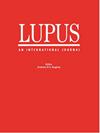Alterations of the microbiome across body sites in systemic lupus erythematosus: A systematic review and meta-analysis.
IF 1.9
4区 医学
Q3 RHEUMATOLOGY
引用次数: 0
Abstract
BACKGROUND Systemic lupus erythematosus (SLE) is a complex autoimmune disease with unclear etiology. Growing evidence suggests the microbiome plays a role in SLE pathogenesis. However, findings are inconsistent across studies due to factors like small sample sizes and geographical variations. A comprehensive meta-analysis is needed to elucidate microbiome alterations in SLE. OBJECTIVE This study aimed to provide a systematic overview of microbiota dysbiosis across body sites in SLE through a meta-analysis of alpha diversity indices, beta diversity indices, and abundance taxa of microbiome. METHODS A literature search was conducted across four databases to identify relevant studies comparing SLE patients and healthy controls. Extracted data encompassed alpha and beta diversity metrics, as well as bacterial, fungal, and viral abundance across gut, oral, skin, and other microbiota. Study quality was assessed using the Newcastle-Ottawa Scale. Standardized mean differences and pooled effect sizes were calculated through meta-analytical methods. RESULTS The analysis showed reduced alpha diversity and distinct beta diversity in SLE, particularly in the gut microbiota. Taxonomic analysis revealed compositional variations in bacteria from the gut and oral cavity. However, results for fungi, viruses, and bacteria from other sites were inconsistent due to limited studies. CONCLUSIONS This meta-analysis offers a comprehensive perspective on microbiome dysbiosis in SLE patients across diverse body sites and taxa. The observed variations underscore the microbiome's potential role in SLE pathogenesis. Future research should address geographical variations, employ longitudinal designs, and integrate multi-omics approaches.系统性红斑狼疮患者不同身体部位微生物组的变化:系统回顾与荟萃分析。
背景系统性红斑狼疮(SLE)是一种病因不明的复杂自身免疫性疾病。越来越多的证据表明,微生物组在系统性红斑狼疮发病机制中发挥作用。然而,由于样本量小和地域差异等因素,不同研究的发现并不一致。本研究旨在通过对微生物群的α多样性指数、β多样性指数和丰度类群进行荟萃分析,系统地概述系统性红斑狼疮患者身体各部位微生物群的菌群失调情况。方法在四个数据库中进行文献检索,以确定比较系统性红斑狼疮患者和健康对照组的相关研究。提取的数据包括α和β多样性指标,以及肠道、口腔、皮肤和其他微生物群中细菌、真菌和病毒的丰度。研究质量采用纽卡斯尔-渥太华量表进行评估。结果分析表明,系统性红斑狼疮患者的α多样性降低,β多样性明显增加,尤其是在肠道微生物群中。分类分析表明,肠道和口腔细菌的组成存在差异。结论:这项荟萃分析从一个全面的角度探讨了系统性红斑狼疮患者体内不同部位和分类群的微生物群失调情况。观察到的差异强调了微生物组在系统性红斑狼疮发病机制中的潜在作用。未来的研究应关注地域差异,采用纵向设计,并整合多组学方法。
本文章由计算机程序翻译,如有差异,请以英文原文为准。
求助全文
约1分钟内获得全文
求助全文
来源期刊

Lupus
医学-风湿病学
CiteScore
4.20
自引率
11.50%
发文量
225
审稿时长
1 months
期刊介绍:
The only fully peer reviewed international journal devoted exclusively to lupus (and related disease) research. Lupus includes the most promising new clinical and laboratory-based studies from leading specialists in all lupus-related disciplines. Invaluable reading, with extended coverage, lupus-related disciplines include: Rheumatology, Dermatology, Immunology, Obstetrics, Psychiatry and Cardiovascular Research…
 求助内容:
求助内容: 应助结果提醒方式:
应助结果提醒方式:


